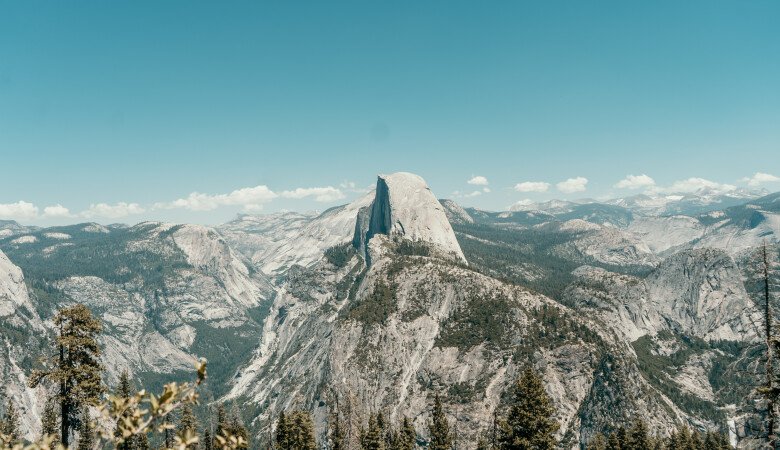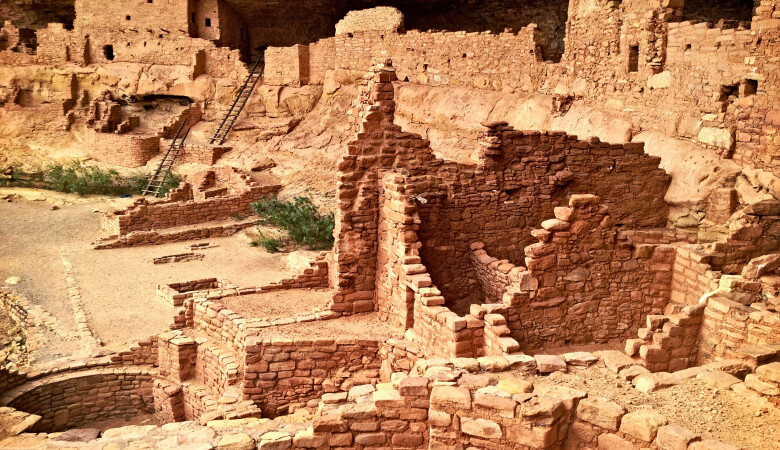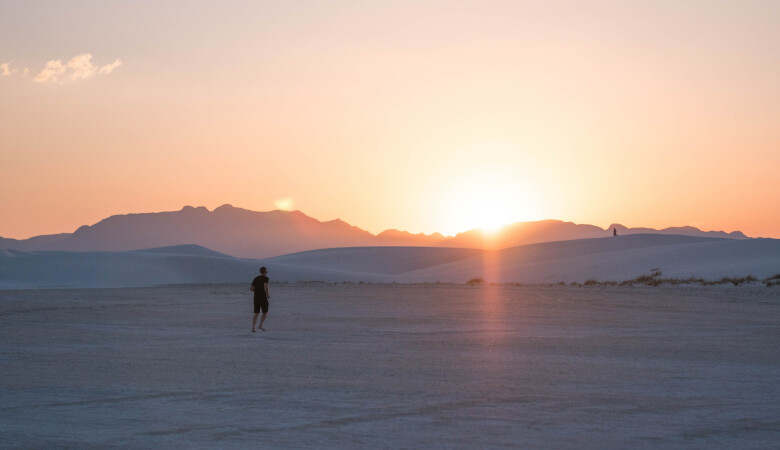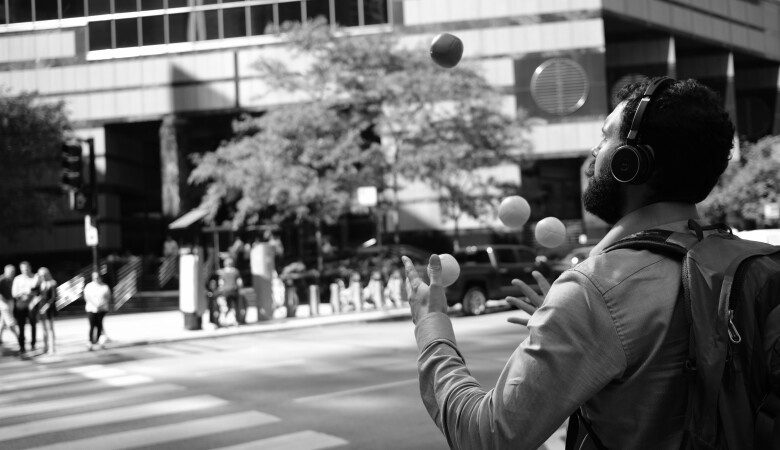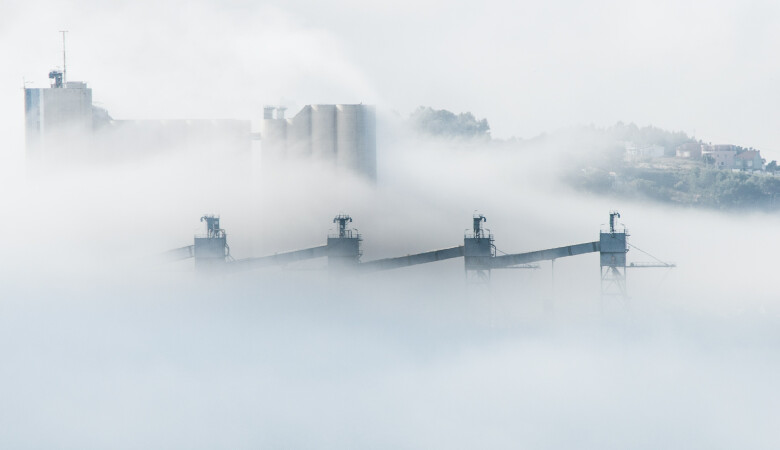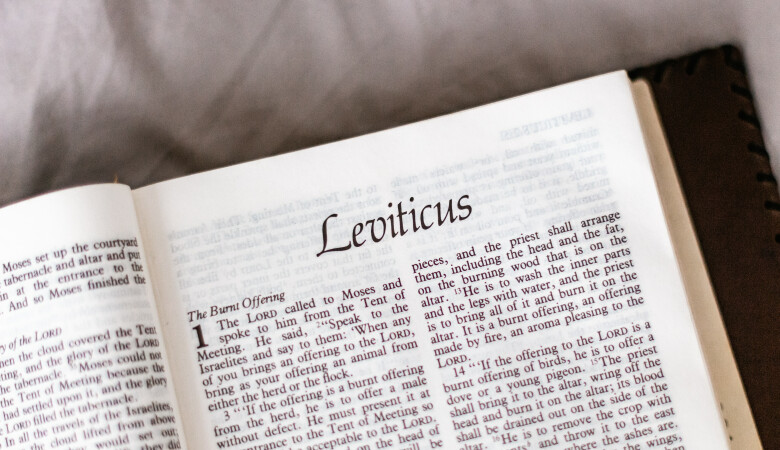Faith Active from the Red Sea to Jericho (Hebrews Sermon 58 of 74)
February 26, 2012 | Andy Davis
Hebrews 11:29-31
Walk by Faith, Glory of God
I. By Faith the People Crossed the Red Sea (vs. 29)
What an incredible night that was. We talked about a week ago, the Red Sea crossing as God led Israel through the Red Sea on dry land, how the pillar of fire lit their way, and how it kept Pharaoh's mighty army, and the chariots, and the horsemen from devouring the Israelites as they intended. "By faith, the people passed through the Red Sea as on dry land," with the water walling up to the left and to the right. A night that could have been fraught with terror and bloodshed and death instead for them meant life and a picture of salvation. And by doing that awesome thing, God established a name for himself and a testimony that lives to this very day. And the reason for that is what I just prayed a moment ago, God never changes. The same God who did that at the Red Sea is alive today. And though he may do and will do different things in our generation than he did in their generation, still he's the same.
Israel’s Identity and the Red Sea Crossing
Almost a thousand years after the Red Sea crossing, Daniel in exile in Babylon prayed concerning the restoration of the Jews back to the Promised Land; they had been deported because of their sin, their violation of the covenant of God. And Daniel prayed in this way, in Daniel 9:15, "Now O Lord our God, who brought your people out of Egypt with a mighty hand, and who made for yourself a name that endures to this day, we have sinned, we have done wrong." You see, he's going back in his mind almost a thousand years to the Red Sea crossing, and he says that God made a name for himself that day. From that moment on, the moment of the Red Sea crossing on, the Red Sea crossing would live and shape Israel's identity as a nation. It would never be forgotten.
Later on in the Exodus, right before they entered the Promised Land, in Deuteronomy 11, God reminded them of what he had done at the Red Sea crossing. And then again at the end of Joshua's life, as he's reestablishing the covenant, he reminded them of the Red Sea crossing. In the Psalms, the Psalmists can't get enough of talking about the Red Sea crossing. Psalm 66:5-7, "Come and see what God has done. He turned the sea into dry land." Psalm 77:19, "Your path led through the sea, your way through the mighty waters. Though your footprints were not seen. You led your people like a flock by the hand of Moses and Aaron." Psalm 78:13, "He divided the sea and led them through, he made the water stand firm like a wall." They just can't get enough of talking about the Red Sea crossing. So also the prophets, Isaiah 43, "This is what the Lord says, he who made a way through the sea, a path through the mighty waters, who drew out the chariots and horses, the army and reinforcements together, and there they lay, never to rise again, extinguished, snuffed out like a wick." Isaiah 43.
After the exile, Nehemiah returned back to it again. Nehemiah 9:10-11, "You made a name for yourself which remains to this day, you divided the sea before them so that they pass through it on dry ground. But you hurled their pursuers into the depths like a stone into the mighty waters." Even on into the new covenant era, Stephen, as he stands on trial for his life before the Sanhedrin, returns to the Red Sea crossing. In Acts 7:36, "He led them out of Egypt, and did wonders and miraculous signs in Egypt at the Red Sea, and for 40 years in the desert." This became part of Israel's manner of speaking. God led us through the waters. Because God led us through the waters, don't be afraid now of whatever trial you're facing. Again, Isaiah 43, in verse 2, "When you pass through the waters, I will be with you. And when you pass through the rivers, they will not sweep over you."
Later in Isaiah they return to the Red Sea crossing as if to say, God, you led us then, why aren't you leading us now? You were mighty and powerful then, why not now? Isaiah 63, "Where is he who set his Holy Spirit among them, who sent his glorious arm of power to be at Moses' right hand, who divided the waters before them to gain for himself everlasting renown." Who led them through the depths…Where are your zeal and your might? Your tenderness and your compassion are withheld from us." God, what you did at the Red Sea crossing, do something like that for me now. The future restoration of Israel likened again to the Red Sea crossing in Zechariah 10: "Though I scatter them among the peoples, yet in distant lands, they will remember me. They and their children will survive, and they will return. I will bring them back from Egypt and gather them from Assyria. I will bring them to Gilead and Lebanon. And there will not be enough room for them. They will pass through the sea of trouble, the surging sea will be subdued, and all the depths of the Nile will dry up." And so their restoration will be as a Red Sea crossing through the sea, the surging sea of trouble, God would restore them to the Promised Land.
And so the Red Sea crossing was a major part of Israel's self-identity as a nation, but it was far more than that. As we have already said, it was by this that God glorified himself. It was by this that God made a name for himself that endures to this day. Three times in Exodus 14 he says his motive for the Red Sea crossing. He says, "I will harden Pharaoh's heart, and he will pursue them, but I will gain glory for myself through Pharaoh and all his army, and all the Egyptians will know that I am the Lord." Again. Exodus 14-17, "I will harden the hearts of the Egyptians so that they will go in after them, and I will gain glory through Pharaoh and all his army through these chariots and horsemen." Exodus 14-18, "The Egyptians will know that I am the Lord when I gain glory through Pharaoh and his chariots and horsemen."
So the point of the Red Sea crossing, ultimately, was that God would gain glory for himself and make a name for himself; why that? It's so someone like Rahab would call on that name and be saved. It's really that simple. That sinners to the ends of the earth would hear of these kinds of stories, and look to the God who did them, and trust in him for the salvation of their souls, that's why.
Now, not everyone who passed through the sea as on dry ground was ultimately saved. Korah and Dathan and Abiram passed through the Red Sea as on dry land, they were not saved. Nadab and Abihu passed through the Red Sea as on dry ground, and they were not saved. And the 10 spies who came back and brought a bad report about the land and led Israel in rebellion against God, they were not saved. They passed through the Red Sea as on dry ground. Isn't it amazing? Aren't God's ways strange, that in the cases of those men that I just listed, the actual physical experience of walking through the Red Sea as on dry ground did not save them, but an Amorite woman, a prostitute living in the Wall of Jericho, hears about the report, and by that she is saved. She's not even there, just heard the report years later, believed it and was saved. Aren't God's ways marvelous? Isn't the sovereignty of God and salvation a marvelous thing to behold?
II. By Faith the Walls of Jericho Fell (vs. 30)
And so, in our study in Hebrews 11, we come to beyond the Red Sea crossing to the city of Jericho at last. Now, you may wonder what happened from the Red Sea crossing to Jericho, and what happened was rebellion; the 40-year gap. We already covered this in the Book of Hebrews, we discussed it in Hebrews chapter 3, how he quotes psalm 95 and says, "So, as the Holy Spirit says: 'Today, if you hear his voice, do not harden your hearts as you did in the rebellion, during the time of testing in the desert, where your fathers tested and tried me and for forty years saw what I did. That is why I was angry with that generation, and I said, 'Their hearts are always going astray, and they have not known my ways.' So I declared on oath in my anger, 'They shall never enter my rest.'"
Forty years, 40 lost years through unbelief, through unbelief. They weren't converted by passing through the Red Sea as on dry ground. They get to the other side, and they soon complain about food and water. And they murmur and complain against God.
And they defied God, they defied the Lord at Mount Sinai by crafting a golden calf, which they bowed down and worshiped, despite the fact that they had heard the voice of almighty God forbidding them to do it, they did it anyway because their hearts were going astray. And then, as I mentioned, when the 10 spies came back, and there were 12 that went out, but 10 of them brought a negative report about the land, and said that the land devours its people. And we saw mighty warriors there, the Anakites, and we saw vast cities with walls that reach up to the sky. And "We seemed like grasshoppers in our own wyes, and we looked the same to them." And they led Israel to rebel against God and to not trust in him, to not trust in his promises. And they led Israel to talk of stoning Moses, and to go back to Egypt and serve as slaves there. And so their punishment was 40 years of wandering.
But now the time has come, that's over, that generation's dead. They're dead, all of them dead. Their bodies were scattered through the desert. Some of them died right away, some of them died over decades, but they were all dead except for Joshua and Caleb. But they're all dead. Now, the time has come for their children to believe God and to trust in him and to take the Promised Land as God had promised. But there are some major obstacles that were facing them. The Jordan River was in front of them at flood stage, and on the other side of the Jordan was the awesome city of Jericho, of which it is said we saw city walls there that went up to the sky. They had no siege weapons to destroy those walls. Gunpowder hadn't been invented yet. There were terrible obstacles, and they couldn't just bypass the city, they couldn't leave it in their rear militarily, and besides which it would dishonor God to leave any part of the Promised Land not conquered. It was part of what God had promised Abraham, Isaac and Jacob, it was going to be conquered. And so the city had to be taken, and so the city was taken, but it was done by faith. By faith, the walls of Jericho fell after the people had marched around it for seven days.
Now, Jericho was prepared for a siege, it says in Joshua 6:1. "Now, Jericho was tightly shut up because of the Israelites, no one went out and no one came in." So they were ready for a siege. God commanded the people what to do, step by step he told them what he wanted done. Day one, first day, they were to march around the city in total silence. An armed guard would lead the way, the Ark of the Covenant would come next, seven priests carrying trumpets would come next, and then the people after that. And they would march around the city and not say a word. They would not raise up a war cry, they wouldn't do anything, they would just march around the city and then go back to their camp. And so they would do the same thing on the second day, and the third, and the fourth, right up through the sixth day. Same thing every day. Finally, on day seven, they were to march around the city in the same pattern seven times, and then they were to shout to the Lord, for God would give them the city and they were to go, each man, straight into the city and conquer it. And by faith, Israel obeyed those strange commands, and by faith the walls of Jericho fell, and the people obeyed and by faith Jericho was conquered. What an awesome story, what an incredible thing, and again, unpredictable.
What Does the Unique Siege Teach Us about God?
Well, what does this teach us about God and his ways? Well, first, God's ways are radically different than ours, aren't they? "'For my thoughts are not your thoughts, neither are your ways my ways,' declares the Lord. 'As the heavens are higher than the Earth, so are my ways higher than your ways, and my thoughts than your thoughts.'" You know what the direct corollary of that is? "Trust in the Lord with all of your heart, and lean not on your own understanding. In all your ways, acknowledge him, and let him direct your paths." His thoughts are better than yours; they're not just different than yours, they're better. And so we just have to trust in him, stop relying on our own wisdom, and our own patterns, and our own ways.
Has anything like this ever happened since? Had anything like this ever happened before that? It's an incredible thing. God has an endlessly creative list of different things to do in every generation. It's just amazing, every generation something new and different. A baby born under a ban, put in a basket, and set afloat in a river grows up to lead God's people in a mighty way, that'll never happen again, not like that it won't. A young shepherd boy goes out with a stone, five smooth stones, one stone and a sling against a nine-foot giant, the two of them representing their armies, they fight and he kills him without a sword in his hand. Friends, that'll never happen again. It was just that one time. It's incredible. A prophet ascends to heaven in chariots of fire while his successor watches on, and a cloak falls to the ground. It's never going to happen again. God has lots of different things to do. He's so creative. In every generation there's something different. A Gentile general covered with leprosy comes and bathes seven times in a river, comes up clean. Incredible. Every generation, something different. So God tells his people do some strange things, to do them by faith, and he does different things in every generation.
Now, when they come to Jericho, they come to a walled fortress, a city with thick walls, no one going out, no one coming in. What do you do? You have to conquer it. Well, you have four options, at least that's how it looks to military science. You can go over the walls by means of siege towers or siege ramps, you can go through the walls by means of siege engines; like I said, there wasn't gunpowder, which kind of put an end to walled fortresses at that point. But there were catapults and battering rams, things like that. You could tunnel under the walls, or you could surround the walls and wait, and that would be a siege, and eventually running out of food and water, they would have to come out. Those were your four strategies. God said, in effect, none of the above. None of the above, we're not doing any of those four options. Carnal wisdom will avail you nothing at all. We don't have time for the siege, we've got other plans, we've got other people to conquer. And you don't need any siege engines, just watch what happens to the walls. There's no need to go over them because you can walk right on top of them when they come down. God's ways are better than our ways. And so God does unusual, different things in every generation, this we learned from Jericho.
Secondly, we also learned that God is independent of all laws of nature. He created them, he set them up, but he is not bound by them. And we thank God for them. The sun rises in the east, it sets in the west, there's a certain rhythm that God set up to the seasons, which he said would never fail after the flood. God set up that rhythm of the seasons. Gravity always takes objects in the same direction, and you know what that direction is. You count on friction every day; you may not think you do, but you count on it. I know that, because when our floors are incredibly slick, down we go. We've cleaned them with polish before, and that's... It's been exciting. It's like walking on ice, you're never sure what's going to happen. So we rely on these things, though you may not have studied them, and you may not appreciate them the way some engineers or scientists do, but they're just part of the physical world in which we live.
More in everyday life, if it were not so, we couldn't learn by experience, because every day would be something weird and new, it'd be like we'd be learning the universe new every day. But God hasn't done that. God sets up things, and we use the term laws of nature, or physical laws because of their constancy. It is the basis of science, it's why it's even worth studying, because God is so consistent. I'm just telling you, God is not bound by any of them. He's not bound by any of them, he can do what he wants. And there are no visible means for that wall, those walls to come falling down, but that didn't mean that they couldn't come falling down, because God can do anything that power can do. That is the nature of God. God is independent of all laws of nature.
Thirdly, God loves to raise up mighty obstacles before his faith-filled people, and then conquer those obstacles by the faith of his people; he loves to do it. He loves to raise up difficult tests, and challenges, and obstacles so that he can gain glory for himself when his people trust him enough to get through them.
And fourthly, Satan can't stop God. He can't stop him. Satan's powerful, far more powerful than any person in this room, or all of us put together. He is powerful, he is the God of this age, so called, but he is nothing compared to Almighty God and that Jericho, that was a walled satanic fortress of might, that Canaanite religion was wicked. It was wicked and it was evil. And God had given them time to repent. In the days of Abraham, in Genesis 15, he said, "The sin of the Amorites has not yet reached its full measure." But you know what? This is just maybe a little allegorical, I don't know, but I see with the 13 times that they traveled around that walled fortress, that satanic fortress, 13 times, that was the death knell of their Amorite religion. It was the final tolling of the bell when God would crush it for good. The time had run out, 400 years had run out. The time had run out, the time had come to repent, and it was done, and Satan can't stop it. Now, you look at that Jericho like a walled armed satanic camp, a fortress.
Jesus Will Build His Kingdom
And Jesus said it this way. He said speaking of Satan and his kingdom, he said, "When a strong man fully armed guards his own house, his possessions are safe, but when someone stronger attacks and overpowers him, he takes away the armor in which the man trusted and divides up the spoils." Amen, Jesus is someone stronger than the strong man. Satan's a strong man, Jesus is stronger. And Jericho could not withstand the power of Almighty God, Satan can't stop God. And throughout history God has in his sovereign way, in his sovereign... For his sovereign glory and purposes allowed mighty walled fortresses to be erected by Satan himself against the advance of the people of God. And they've stood in our way, these walls. Jesus said these walls would be there. He said it, "I will build my church and the gates of Hades will not prevail against it." He knew about those walls, he just said those walls are coming down. So look at the walls of the Roman Empire, that pagan, luxurious, militarily unconquerable it seemed Roman Empire. The one that put Jesus to death through Pontius Pilate, with all of its mighty roads and all of its economic infrastructure and all that sort of stuff.
Mighty walls, but they came down into the steady onslaught of the Gospel. So that at some point, one of their emperors declared himself to be a Christian, Constantine. I mean, whether he was or wasn't, matters to him a lot. But we cannot judge from the outside. All I'm saying is, look at the progress of the Gospel, by the blood of the martyrs it advanced. And so also, hundreds and hundreds of years later, the walls of false doctrine by the Medieval Roman Catholic Church were erected against the Gospel, all kinds of additions and subtractions from the Word of God, and human wisdom, and perversions, and traditions of men came in. But they could not stop the reclamation of the Gospel and the reformation of the church, those walls came down. Just how about the walls of paganism, of godlessness that have come down under the steady advance of the Great Commission in the last 100 years? Hasn't it been beautiful to watch?
Really since the days of William Carey, and Adoniram Judson, and then, Hudson Taylor in China and Robert Moffat in Africa, Jim Elliot and the others in Ecuador, and Don Richardson in Irian Jaya. Just one missionary hero, after another, those walls of unbelief coming down, the Gospel advancing, fewer and fewer unreached people groups. God is awesome. And so, he erects these mighty walls and then by his sovereign power brings them down. Islam is such a wall. A walled satanic fortress with people who are held by a false view of God and they're getting liberated every single day by the Gospel of Jesus Christ, and they are our brothers and sisters, isn't it sweet? And God has that kind of power in your life as well, by faith, though. All of these victories are won by faith. After the people had marched around the wall for seven days, it was by faith the walls of Jericho fell. So what do we learn about faith and its ways?
Well, first the daring of their faith, how daring were they? They were on the other side of the Jordan River, back at flood stage now, with it behind them, they're in Palestine, they're in the Promised Land on the side of the... With their enemies, but they don't have any walls. They don't have any city, they're there on their own with only God to protect them, but isn't that enough. One commentator, AW Pink, talks about the courage, the daring of their faith. He said there are three types, there are three degrees of faith. I thought this was insightful. There's a faith which receives, like a beggar you go to King Jesus and you say, I have nothing. And like a beggar you receive what he has to give you, by faith you receive salvation, forgiveness, simply like a beggar, a faith that receives. There is secondly a faith, which relies or counts on God to fulfill his promises, by that you move out in your Christian life. But thirdly, there's a faith that risks. A faith that risks, which dares something for the Lord, it puts earthly resources, earthly pleasure, earthly comfort on the line for Jesus.
I fear that many of us stop after the second. We've got that faith that receives and the faith that relies, but we don't have that faith that risks. We're set here in Durham, we're set here in the Triangle area. We've got people to reach with the Gospel, but they will not be reached if we don't risk. And so, look at the daring of their faith. Look at the obedience also of their faith. Did not God's commands appear strange? What would walking around the city in total silence do? What would walking around it 13 times do? But they just obey, they simply did what they were told. How rebellious we are. How much we think our ways are better than his ways. But they were obedient. We see also the discipline of their faith. They were like well-trained soldiers, they did what they were told, they didn't argue with Joshua saying, "Hey, you know, we built high ramps when we were building the pyramids, we could build a ramp up to the walls of Jericho, we could do that." Carnal wisdom, carnal knowledge, they didn't do that. They just disciplined themselves under their commanding officer. We see the patience of their faith.
Day after day after day, walking around the walls, the seventh day 13 times, and the wall still didn't fall. 13 times of walking, the wall's still intact. Then they gave that war cry, and then the wall came down. They praised the Lord, and that wall came down. But they had to be patient. God exercises our faith so that we may develop perseverance, that we may develop patience. And we see also the anticipation of their faith. I love how they shout the victory before the walls come down. Isn't that cool? They shout the victory, before the walls even show any indication of coming down. Trusting in him, that God's going to act, he's going to be faithful.
Reading about the missionary, Robert Moffat, early 19th century Scottish pioneer missionary in South Africa, the Bechuanas, he was reaching out to them. He labored for years without a single convert among that people. Some friends from England wrote to him and asked, they knew about his trials, his difficulties and they wanted to brighten his day. So they said, "We'd like to buy you a gift and send it to you. What can we buy for you?" They were thinking maybe a book or something that would bring some comfort or a consolation to him. He said, "Would you please send me a communion set? I have no set with which I may share communion with the converts." He didn't have a single convert when he wrote that letter. Before the communion set returned, he had 12 of them. Isn't that a great story? The anticipation of faith. Mark 11:24, "Therefore I tell you, whatever you ask for in prayer, believe that you have received it and it will be yours." So it was with the Jews at Jericho.
III. By Faith Rahab Was Saved (vs. 31)
But now let's focus on a single individual. There was living in the walls of Jericho a woman. And her name was Rahab. Verse 31, "By faith, the prostitute Rahab, because she welcomed the spies was not killed along with those who are disobedient." How did Rahab get in here? I mean, do you ever wonder that? This is the Hall of Faith. I mean, you have Abel and you have Enoch and you have Noah and you have Abraham and Sarah and Isaac and Jacob, and Joseph, and Moses, and Rahab? How did she get into the Hall of Faith?
I tell you, the salvation of Rahab is one of the four greatest salvations in the Bible. I'm just going to go on, you're going to come ask me, what are the other three, aren't you? You're interested, what are they? One of the four greatest trophies, shocking trophies of God's grace. Nebuchadnezzar, Saul of Tarsus, thief on the cross, each for different reasons. Nebuchadnezzar filled with arrogance, the dictator, tyrant, murderer, animal for seven years and then lifted his eyes to Heaven and God restored his sanity and he wrote one of the most beautiful praises to the sovereignty of God you'll find anywhere in Scripture. Saul of Tarsus, you know well, the morning breathing out murderous threats against the Lord's disciples, converted by the evening, by display of the resurrected Christ in his glory. Thief on the cross, the most surprising to me, because Jesus had so little time to work with.
And at the beginning of the time on the cross, he's reviling Jesus, by the end, he's saying, "Remember Me, Lord, when you come in your kingdom." And then there's Rahab. And when you come to Rahab, you realize all of the obstacles. Again, we're talking about obstacles. She was a Gentile, not a Jew, worse than that, she was an Amorite, about which I've already spoken. And they were under the wrath of God. They were set to be exterminated, to be condemned, every one of them. The Amorites had had 400 years to repent and they had not redeemed the time and now the wrath of God was about to fall. Not only that, but she was a notorious sinner, she was a prostitute. And there was a logistical problem, her house was in the wall, [chuckle] God intended those walls to come down. And you see in all of that, that God is no respecter of persons whatsoever. He chooses sinners who will most glorify him for his grace. What did Rahab have to offer? All of that mess by which she could glorify God for eternity for his grace to her.
There was nothing whatsoever in this woman that could have commended her to be chosen by God for eternal salvation, it was by the sovereign pleasure of God alone that she escaped the wrath for which the rest of her countrymen were destined. Amazing grace. And yet there were no visible means of grace. There were no Sabbaths, there were no reading of the Scriptures, there were no prophets, there was none of that. What there was, was a report from the Red Sea crossing, and then the killing of Sihon, king of the Amorites and Og, king of Bashan, that's what they had, that's what she had. Everybody had that, there in the city of Jericho. And evidently she was regenerated before the spies even came there. Before the spies even came there. Again, what was the point of the Red Sea crossing? It was that God would make a name for himself.
Why Did God Want to Make a Name for Himself?
Why did God want to make a name for himself? Is he likes some praise-craving fading star in Hollywood that needs people around him, sycophants to say, "Oh, you're so wonderful. Oh, you're so great. Oh, you're so amazing."
No, God is very well-secured within himself, he has no needs like that, he's fine, he's not suffering from self-esteem problems, not at all. No, he makes a glorious name for himself that sinners like you and me will call on that name and be saved, for everyone who calls in the name of the Lord will be saved. And so, he makes much of his name so that we will call on that name and be saved. It's for salvation of Rahab that the Red Sea crossing happened and others too. And faith comes by hearing the message, and so, some messengers came to say what the God of... The Jews had done to the Egyptians. Rahab, living in the walls, as a prostitute was there, and she heard and believed, then Joshua was sent out two spies to scout out the land and this is what Rahab said to them, when they came to her house. "We have heard how the Lord dried up the water of the Red Sea for you when you came out of Egypt, and what you did to Sihon and Og, the two kings of the Amorites East of the Jordan, whom you completely destroyed, when we heard of it, our hearts melted, and everyone's courage failed because of you, for the Lord your God is God in heaven above and on the Earth below" Do you hear the faith in that?
Here is the true God. I know it's true. Now, then please swear to me by the Lord, that you will show kindness to my family. All of Jericho was terrified of the Israelites, but only Rahab cried out for mercy. And frankly, she's the only one that got the chance to do it. God sovereignly orchestrates both ends of that. And she had that faith established before they came, despise, it says in James 2:25, "In the same way, was not even Rahab the prostitute justified or considered righteous, [the NIV has] for what she did, listen, when she gave lodging to the spies?" You see, she had faith before they came, so that she opened her home to them and took them in, that was a display of her faith at that point and then sent them off in a different direction. And her faith worked in her a hope. Faith is the assurance of things hoped for. She actually has a hope that the God of Israel might spare her and provide a place for her. There might be life for her. Salvation for her, she has a hope based on that.
I notice the breadth of her faith as well. She's concerned not just for herself, but her family. And so, her family is extended grace because of her faith, they are blessed. I don't know if they were saved. I know that they were safe from the sword at that time, I don't know if they were spiritually saved. I have no idea. So, what was the effect of Rahab's faith? Well, James' point, James 2, is genuine faith always produces works, and so good works came from that genuine faith. She welcomed the spies. She sent them off in a different direction to protect them from their pursuers. She hung the little red cord in the window to identify her house as her own house, she did what she was told. In a minor way, I want to say we see the imperfection also of Rahab's faith. Faith doesn't make you a perfect person. She lied to the king of Jericho about the spies who she was hiding among the flat stalks on her roof. Now some of you are going to come to me and say, "Hey, what could she have done? What could she have done?" She could have told the truth, that's what she could have done. Well then, she and they would have been killed. Maybe, I don't know that.
But I just want to ask you a question, can you imagine Jesus lying to save his life? Can you imagine Jesus lying to save someone else's life? Can you imagine that? So, she's imperfect. But so are you, and yet you believe in Jesus, amen. And Hebrews 11 and James 2 doesn't touch on those things. It's in the Old Testament, we know about it, but it's not a major feature. By faith, our sins are forgiven. By faith, our sins are covered. Now, if you want to come after it and talk to me about Corrie ten Boom, and all of that and what they could have or should have done, let's have a lively discussion. I'm just saying the Scripture says it's better to die than to lie. And not one of us has that commitment to truth, not the way Jesus did. Jesus, when he was charged on trial for his life, under oath by the high priest, "Are you the Christ, the Son of the living God?" He said, "I am." He made the good confession. I am. And in the future you will see the son of man sitting at the right hand of the Mighty One and coming on the clouds of heaven and then the high priest tore his robe, and condemned Jesus to death.
It's Jesus' way of thinking, he would rather die than sin. And what was the outcome of Rahab's faith? Her life was saved, and I say to you, not merely her life, but her soul was saved too. For God, a genuine faith came into her life, turned her away from wickedness, sanctified her, made her yearn for holiness, she gave up the life of a prostitute. She was accepted into the congregation of Israel, she married Salmon of the tribe of Judah, and she gave birth to Boaz, whose story you can read about in the Book of Ruth, what a godly man Boaz was. King David's grandmother. And amazingly then, this prostitute made it not only into the Hall of Faith, but into the genealogy of Jesus in Matthew chapter 1. Incredible, by faith.
IV. Applications
So what? So come to Jesus. Come to Jesus, God has made a far greater name for himself at the cross and the empty tomb than he ever made at the Red Sea. By sending his son, a descendant of Rahab, by sending his son in the flesh to die on the cross in our place, he has made the only way through condemnation you will ever find. It's the only way of salvation, faith in Jesus.
That's why the author wrote Hebrews 11, that we would hear and believe and be saved through Jesus. Trust in him. And if you say to me, "Well, I have trusted him," I say, "Keep trusting in him." Keep believing in Jesus, feed on Christ, go to the cross again and again, you're still a sinner, you still need cleansing. The cleansing is still the same way. There's a fountain open in the House of David to cleanse you of all your sins, trust in him and maybe you've never trusted in Jesus. Maybe you were invited here today by a friend, maybe you had not yet made a commitment to Christ. Don't leave this place unconverted, the rest of the sinners, the Amorites in Jericho they all died under the righteous judgment of God, all of us deserve it. But by faith, God calls out his chosen ones to believe. You say, how can I know if I'm chosen? Come to Jesus, it's the only way you can do it. If God chooses you, you will come and I say come. It's not hard. Just look to Jesus with eyes of faith, trust that God gave him for you, that his blood shed on the cross is to forgive you of your sins, look to Christ resurrected for your eternal life, your resurrection, trust in him.
And second of all, can I just urge you, stand in awe of God and the Red Sea crossing. Let's talk about it, why not? Say, wasn't God awesome at the Red Sea crossing? Like, well, that's old news. It's alright. It was old for the psalmists that were writing about it. God's the same yesterday, today and forever, to say, "My God can make a way through the Red Sea." And Zechariah 10 implies that we can kind of allegorize it to some degree. Don't go wild, now, Bible teachers, don't do it. But God can make a way through a sea of trouble for you. He can do it. He does the same thing in Isaiah 43. He said, "Look, I made a way through the Red Sea at that time. I'm going to make a new way, a better way in the future," uses that kind of way of speaking. Walk through your troubles and don't expect an easy life. Are you shocked by the trials that you're going through? Medical trials, financial trials, are you struggling? God delights to raise up obstacles, and then have you by faith conquer them and overcome them. He's set before us two infinite journeys. The internal journey of growth and holiness, Christ's likeness. You cannot do it without suffering. You can't do it without facing obstacles, you'll only bypass them or conquer them by faith. And neither can we make any progress in the external journey, except by courage and faith. We've got to risk things, brothers and sisters, we will not make progress. Close with me if you would in prayer.









